Elizabeth Cox: Can you outsmart the fallacy that divided a nation?
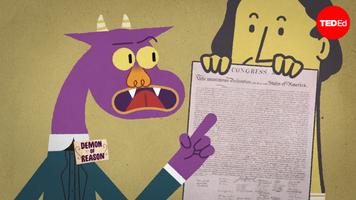
It's 1819. The US is preparing to make Missouri and Maine new states. One representative insists that slavery shouldn't be allowed in any new state. Another believes it should be a state's right to choose. A compromise is proposed: slavery will be allowed in Missouri and prohibited in Maine. Can you spot the problem with this compromise? Elizabe...
Elizabeth Cox: Should we get rid of pregnancy? | Ada, Ep. 3
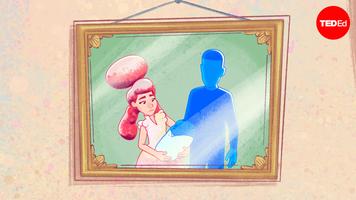
This is episode 3 of the animated series, “Ada.” This 5-episode narrative follows the young library assistant Ada as she juggles two worlds: her daily mundane reality and the future she vividly imagines for all humanity. Traveling through her visions of potential futures, Ada grapples with the ethical and social implications of new technologies ...
Elizabeth Cox: Why do we harvest horseshoe crab blood?
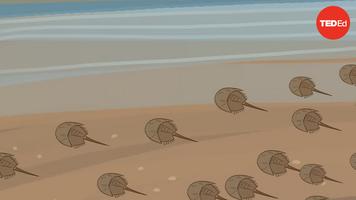
During the warmer months, especially at night during the full moon, horseshoe crabs emerge from the sea to spawn. Waiting for them are teams of lab workers, who capture the horseshoe crabs by the hundreds of thousands, take them to labs, harvest their cerulean blood, then return them to the sea. Why? Elizabeth Cox illuminates the incredible prop...
Elizabeth Cox: A day in the life of an ancient Egyptian doctor
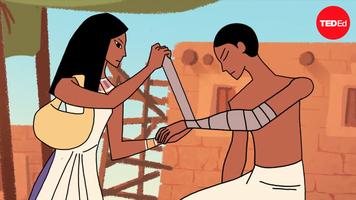
It's another sweltering morning in Memphis, Egypt. As the sunlight brightens the Nile, Peseshet checks her supplies. Honey, garlic, cumin, acacia leaves, cedar oil -- she's well stocked with the essentials she needs to treat her patients. Elizabeth Cox outlines a day in the life of an ancient Egyptian doctor. [TED-Ed Animation by Echo Bridge]
Elizabeth Cox: The hidden treasures of Timbuktu
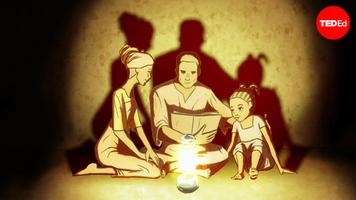
On the edge of the vast Sahara desert, citizens snuck out of the city of Timbuktu and took to the wilderness. They buried chests in the desert sand, hid them in caves, and sealed them in secret rooms. Inside these chests was a treasure more valuable than gold: the city's ancient books. Why were they hiding these priceless manuscripts? Elizabeth ...
Elizabeth Cox: What is a coronavirus?
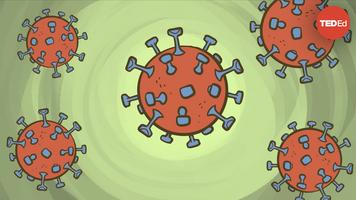
For almost a decade, scientists chased the source of a deadly new virus through China's tallest mountains and most isolated caverns. They finally found it in the bats of Shitou Cave. The virus in question was a coronavirus that caused an epidemic of severe acute respiratory syndrome, or SARS, in 2003. So what exactly is a coronavirus, and how do...
Elizabeth Cox: What is imposter syndrome and how can you combat it?
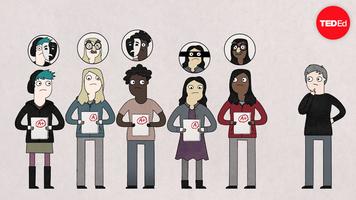
Even after writing eleven books and winning several awards, Maya Angelou couldn't escape the doubt that she hadn't earned her accomplishments. This feeling of fraudulence is extremely common. Why can't so many of us shake feelings that our ideas and skills aren't worthy of others' attention? Elizabeth Cox describes the psychology behind the impo...
Elizabeth Cox: Which species would you get rid of? | Ada, Ep. 5
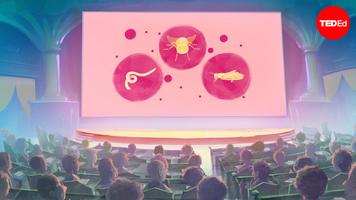
This is episode 5 of the animated series, “Ada.” This 5-episode narrative follows the young library assistant Ada as she juggles two worlds: her daily mundane reality and the future she vividly imagines for all humanity. Traveling through her visions of potential futures, Ada grapples with the ethical and social implications of new technologies ...
Elizabeth Cox: Would you sell your kidney for $100,000? | Ada, Ep. 2
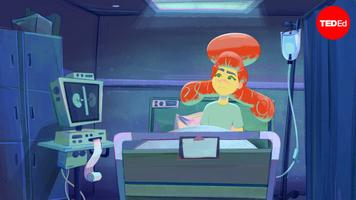
This is episode 2 of the animated series, “Ada.” This 5-episode narrative follows the young library assistant Ada as she juggles two worlds: her daily mundane reality and the future she vividly imagines for all humanity. Traveling through her visions of potential futures, Ada grapples with the ethical and social implications of new technologies ...
Elizabeth Cox: Can you outsmart the apples and oranges fallacy?

It's 1997. The United States Senate has called a hearing about global warming. Some expert witnesses point out that past periods in Earth's history were warmer than the 20th century. Because such variations existed long before humans, they claim the current trend is also the result of natural variation. Can you spot the problem with this argumen...
Elizabeth Cox: What causes hallucinations?
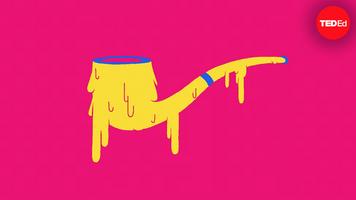
A condition called Charles Bonnet Syndrome can cause blind patients to hallucinate scenes in vivid color. fMRI studies show that these hallucinations activate the same brain areas as sight — areas that are not activated by imagination. Other hallucinations also involve the same brain areas as real sensory experiences. What's going on? Elizabeth ...
Elizabeth Cox: Is fire a solid, a liquid, or a gas?

Sitting around a campfire, you can feel its heat, smell the woody smoke, and hear it crackle. If you get too close, it burns your eyes and stings your nostrils. You could stare at the bright flames forever as they twist and flicker in endless incarnations... But what exactly are you looking at? Elizabeth Cox illuminates the science behind fire. ...
Elizabeth Cox: Can you outsmart the fallacy that started a witch hunt?
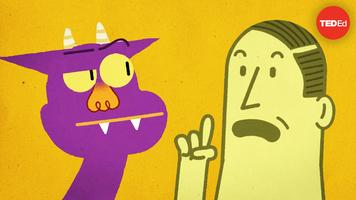
It's 1950. Anti-communist sentiment in the United States is at an all-time high. Senator Joseph McCarthy claims he has a list of communists who are influencing government policy. He makes his first accusation without providing any legitimate evidence, yet the senate committee still schedules a hearing. Can you spot the problem with this hearing?...
Elizabeth Cox: What really happened to the Library of Alexandria?
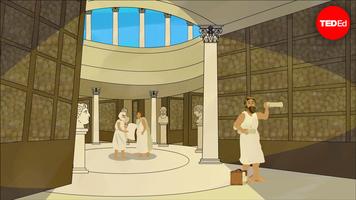
2,300 years ago, the rulers of Alexandria set out to fulfill an audacious goal: to collect all the knowledge in the world under one roof. In its prime, the Library of Alexandria housed an unprecedented number of scrolls and attracted some of the Greek world's greatest minds. But by the end of the 5th century CE, it had vanished. Elizabeth Cox de...
Elizabeth Cox: The surprising link between stress and memory
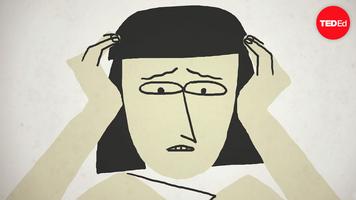
You spend weeks studying for an important test. On the big day, you wait nervously as your teacher hands it out. You're working your way through, when you're asked to define "ataraxia." You know you've seen the word before, but your mind goes blank. What just happened? Elizabeth Cox details the complex relationship between stress and memory. [TE...
Elizabeth Cox: Can you outsmart the fallacy that fooled a generation of doctors?
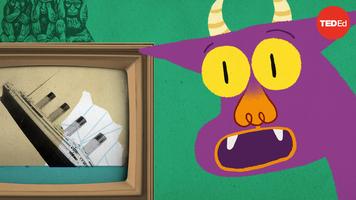
It's 1843, and a debate is raging about one of the most common killers of women: childbed fever— no one knows what causes it. One physician has observed patients with inflammation go on to develop childbed fever, and therefore believes the inflammation causes the fever. What's the problem with this argument? Elizabeth Cox explores the false caus...
Elizabeth Cox: Can you outsmart the slippery slope fallacy?
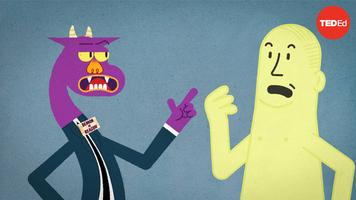
It's 1954. Vietnamese nationalists are on the verge of securing an independent Vietnam under communist leader Ho Chi Minh. U.S. President Eisenhower claims that by virtue of the "falling domino principle," communist control of Vietnam would lead to the global spread of authoritarian communist regimes. Can you spot the problem with this argument?...
Elizabeth Cox: Can you outsmart the college admissions fallacy?
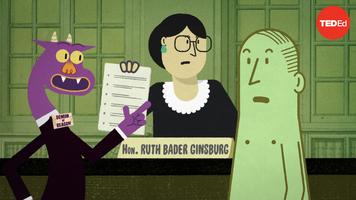
It's 1990. A prospective student has filed a complaint about Virginia Military institute's admissions policy that excludes women. The state argues that VMI's single sex education is an "important governmental objective" and that the exclusion of women from VMI is essential to that objective. Can you spot the problem with this argument? Elizabeth...
Elizabeth Cox: The benefits of daydreaming
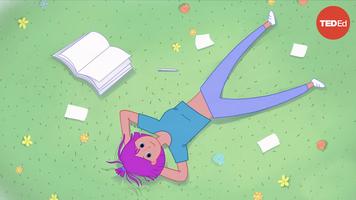
On a daily basis, you spend between a third and half of your waking hours daydreaming. That may sound like a huge waste of time, but scientists think it must have some purpose, or humans wouldn't have evolved to do so much of it. So, what exactly happens in the brain while you daydream? Elizabeth Cox takes a closer look at the science of daydrea...
Elizabeth Cox: Can we actually control superintelligent AI? | Ada, Ep. 4
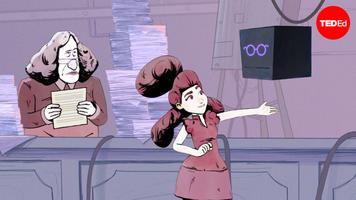
This is episode 4 of the animated series, “Ada.” This 5-episode narrative follows the young library assistant Ada as she juggles two worlds: her daily mundane reality and the future she vividly imagines for all humanity. Traveling through her visions of potential futures, Ada grapples with the ethical and social implications of new technologies ...
Elizabeth Cox: How to survive the apocalypse | Ada, Ep. 1
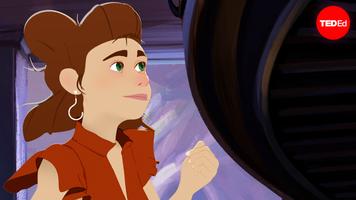
This is episode 1 of the animated series, “Ada.” This 5-episode narrative follows the young library assistant Ada as she juggles two worlds: her daily mundane reality and the future she vividly imagines for all humanity. Traveling through her visions of potential futures, Ada grapples with the ethical and social implications of new technologies ...
Elizabeth Kocs: The energy transition and clean transportation

It has been a chaotic year with COVID-19 causing more disruption than any other event in recent history, not only for public health but also for the global energy system. Although global emissions are projected to bounce back slower than after the 2008 financial crisis, a sustainable recovery is a long way off. What remains to be seen is whether...